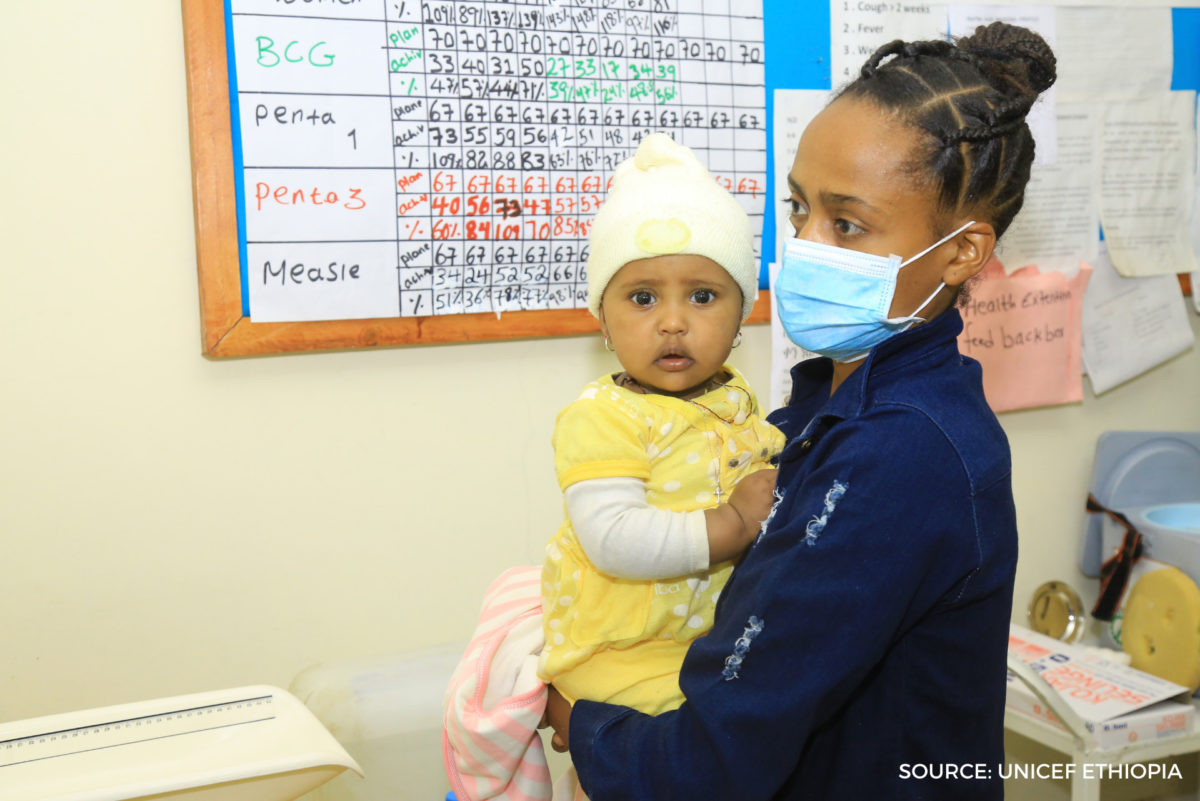#March4Nutrition Around the World: The Impact of COVID on Nutrition in the First 1,000 Days

In honor of National Nutrition Month, 1,000 Days launched our annual #March4Nutrition campaign last week to highlight the connection between COVID-19 and nutrition. All month long, we invite you to follow #March4Nutrition on Facebook, Instagram, and Twitter.
This week, we are shining a spotlight on how the pandemic affects the health of women and children in their first 1,000 days around the globe. We will cover the threats as well as the solutions and some hopeful innovations we have seen.
COVID-19-related disruptions to food and health systems are causing rates of severe malnutrition to rise substantially. In many parts of the world, malnutrition related to the pandemic is projected to kill more people than the pandemic itself.
Women and children in the first 1,000 days are especially vulnerable. Women are traditionally caregivers in many societies, make up a large portion of front-line health care workers, and often eat last and have the least choice, especially in times of crisis or when emergency strikes. Meanwhile, poor nutrition during the first 1,000 days harms a baby’s growth and development, affecting her ability to do well in school and earn a good living in the future – factors that influence recovery from disease and economic shocks.
Addressing malnutrition must be a central pillar in any global COVID-19 response strategy. In addition to supporting the capacity of developing countries to respond to the pandemic, we must ensure that nutrition remains a top priority in health systems strengthening to protect our progress in reducing maternal and child mortality. This includes scaling up programs that protect, promote, and support early and exclusive breastfeeding and age-appropriate and safe complementary foods and feeding practices. This also includes ensuring everyone has sufficient access to nutritious food – particularly those in vulnerable groups and those who are now considered vulnerable due to COVID-19.
In particular, there are four essential, life-saving nutrition interventions that can be deployed today to immediately reduce the number of child deaths and disabilities caused by the pandemic:
- Treat children who are dying with life-saving therapeutic foods.
- Prevent malnutrition in children through actions like ensuring mothers have access to the prenatal vitamins they need.
- Continue large-scale vitamin A supplementation for children.
- Support breastfeeding mothers.
Nutrition programs around the world are adapting in innovative ways to continue providing these essential services despite the COVID-19 pandemic. For example, Alive & Thrive has navigated physical distancing protocols by using text messaging, e-learning, social media, and other mobile platforms to deliver nutrition education on topics like diet diversity and breastfeeding.
Well-nourished women and girls help create prosperous futures and resiliency for us all. As governments continue to respond to the COVID-19 crisis, multi-sectoral nutrition and food security programs must be safeguarded to protect children and families vulnerable to malnutrition. Not only do we want to prevent a protracted nutrition crisis, but nutrition itself will play a role in recovery to help increase immunity/resiliency. We must ensure all people are nourished in ways that secure their health and resilience today, tomorrow, and into the future.
